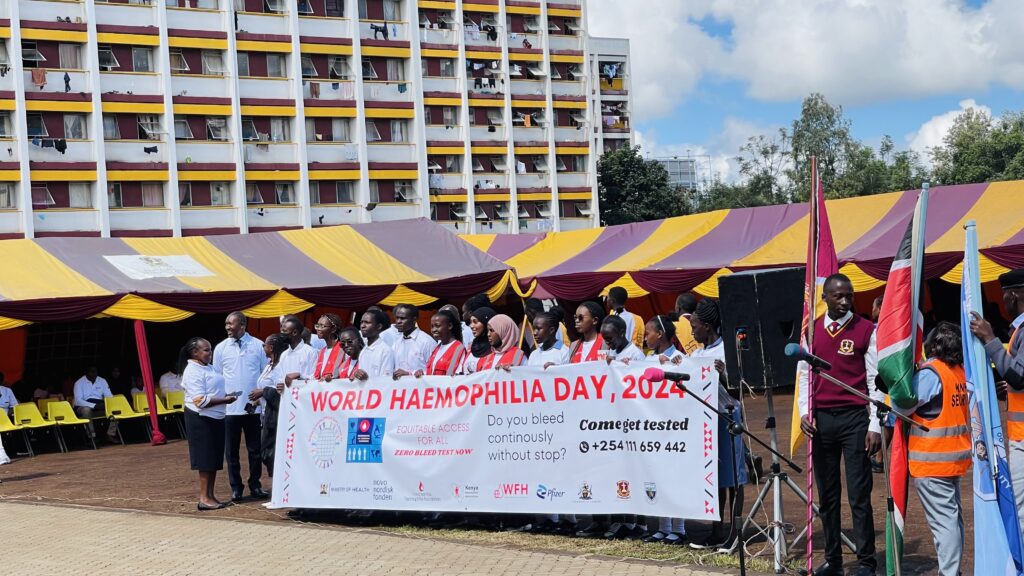
Healthcare affordability, awareness cited as challenged in Hemophilia care » Capital News
NAIROBI, Kenya Apr 17 — Healthcare affordability and low public awareness have emerged as key challenges in addressing Hemophilia, an inherited bleeding disorder that impedes blood clotting.
The condition leads to spontaneous bleeding following injuries and during surgeries, further complicating medical procedures.
The challenges formed the highlights of the discourse at World Hemophilia Day at the Kenya Medical Training College, Nairobi Campus, on Wednesday attended by Hemophilia patients, medical practitioners, and government representatives.
Humphrey Haji narrated how he bravely fought through four surgeries to ensure the condition does not cut short his passion for football.
“I was playing football and hurt my right knee which had me undergo 4 surgeries,” he recalled, noting the condition forced him to adapt to a new life.
“I know that I have a lifetime with this. Yes, I have hemophilia, but I am not hemophilia,” he said.
Kenya Hemophilia Association (KHA) CEO Kibet Shikuku noted late diagnosis impedes the management of the condition hence the need for increased public awareness.
“We know at present a lot of people with hemophilia remain undiagnosed not until they have a complication that they get diagnosed with,” Dr. Shikuku said.
Thousands undiagnosed
KHA’s 2023 report, for instance, estimated 5,500 people in Kenya have hemophilia but only 940 were under treatment.
Stakeholders who graced the World Hemophilia Day event called for the scaling up of interventions to diagnose and put more patients on treatment.
Dr. Isaak Bashir, Head of Family Health at the Ministry of Health, explained the ministry’s Strategic Plan for Prevention and Control of Non-Communicable Diseases covers interventions on hemophilia.
“Our ministry has established the national hematological diseases technical working group to enhance multi-sectoral coordination for hemophilia and other leading conditions,” he said.
Bashir said the ministry had trained 700 healthcare workers in hemophilia management.
He further noted the Social Health Insurance Fund (SHIF) will finance hemophilia treatment under an enhanced funding mechanism.
By Judy Cherop
